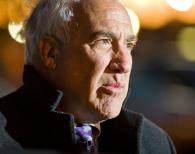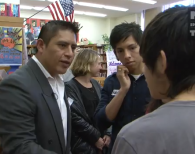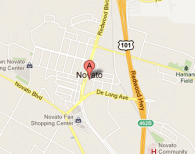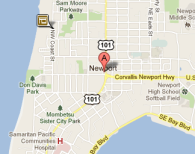As hate infiltrated the Northern California town of Novato when an Asian man was stabbed at a local supermarket, residents not only stood by the victim’s side—several grocery clerks chased down the assailant.
The residents’ heroic response was documented in Not In Out Town II, and has left a lasting impression of a community that comes together in times of trouble.
Since then, “trouble” has revisited Novato, and it has several faces: First, an ongoing debate over high-density affordable housing and increased crime prompted one local newspaper to dub Novato the “City of Rage” and has left a divisive tone at city hall as well as within the community.
Blog

September 21, 2011 - 2:33pm
This morning, Not In Our Town executive producer and director of Light in the Darkness spoke with Michel Martin on NPR's Tell Me More.
"I think you can have wide disagreement about immigration reform and what should be done, but there should be absolutely no disagreement about people being able to walk the streets of a community free from being attacked because of their identity and people should be able to safely report crimes to the police," O'Neill told Martin. "I think that's a bedrock value of our democracy."
Listen to the interview here.
For more information on the film, visit niot.org/lightinthedarkness.

September 21, 2011 - 10:52am
On the day of broadcast, we share with you a video extra featuring Patchogue Mayor Paul Pontieri.
Patchogue, New York Mayor Paul Pontieri reflects on his family's history of immigration, his love of his hometown, and how his life has influenced his policy of inclusion for all Patchogue residents.

September 19, 2011 - 4:42pm
The students of Newcomers High School, a school for newly arrived immigrants in Queens, N.Y., reached out to Joselo Lucero with letters of sympathy when his brother Marcelo was killed in 2008. Two years later, Joselo visits the school to speak to the students about what he learned from the loss of his brother, his experiences as an immigrant, and the difficult process of forgiveness.
"He's telling his story," said Newcomers teacher Julie Mann. "And even though it's a difficult and painful story, he's not afraid to do that, and I think that's a big lesson for my students."
The Lucero family is in no way associated with the Lucero de America Foundation. Joselo Lucero now makes school visits promoting respect for diversity and non-violence. He is available at joselolucero@yahoo.com.

